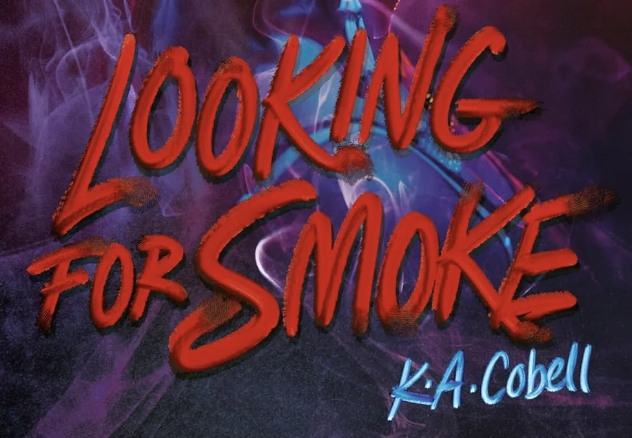Living With Food Allergies Is More Complicated Than It Seems
What I Learned About Severe Allergies From My Mom
January 23, 2023
Food is very important to us, there’s no getting around it. It’s part of what we, as humans, need to survive, so it’s generally seen as a purely beneficial thing. But sometimes, food can pose a serious danger. This is where the dreaded allergies come in.
We are all familiar with them by now, as many people have them, whether they be deadly allergies or simply very mild ones. However, for the people who do not experience food allergies, or just don’t experience them in particularly detrimental ways, it can seem like a somewhat strange concept.
To someone who has never had to watch what they ate for fear of being potentially killed by a seemingly innocuous ingredient in certain foods, iit might be difficult to understand the grae dangers posed by allergies, as well as why it is so important to be mindful of them.
But there is a subsection of these people who have a limited understanding of this: people who have loved ones who suffer from severe allergies to foods, and have been there for the struggles associated with them.
I have someone in my household who has a deadly allergy to shellfish: my mom.
Dealing with this has been a challenge over the years, but it has afforded me quite a bit of knowledge as to how allergies can work and the methods that can be used to prevent reactions. Concepts such as cross contamination, for example, are quite familiar to me now. This is when food may be contaminated by a specific allergen because it was prepared using the same equipment as a food that contains that allergen. In many cases this can lead to a reaction.
I have also learned the importance of the EpiPen. This is a small, pen shaped device which can be administered to keep reaction victims in a stabler condition until they get to a hospital. Things like this are meant to counteract some of the effects of the reaction in order to give the victim more time to seek medical attention. I’ve been there for a few life threatening reactions. It can be scary, but it is extremely important to know what to do in that situation. Watch this video for more on EpiPen administration.
For more insight, I decided to interview my mom, Brandy Dodrill, about the realities of living with a deadly allergy.
Since you have experienced life without this allergy, before you knew about it, how would you say your experience in life has changed?
I am more aware of the ingredients in my food, even the ones that don’t have anything to do with my allergy. Another thing would be that I am kind of afraid to travel for fear that I may have a reaction and not have any help. I have learned how to make a lot more things homemade, and it has actually had an effect on my social life. I can’t go out to eat with my friends unless they let me pick the restaurant. I can’t eat stuff at parties, because you don’t know what’s in it. I am also much more aware of, and concerned about, our country’s policies regarding medical prescription coverage, price caps, et cetera, because of the EpiPen shortage that happened in the past, and the subsequent price hiking.
Another thing that I do differently now is I wipe surfaces and I wash my hands more often and am aware of every single surface that I touch now. Every door knob, every elevator button, someone who ate shellfish could have touched that after touching their food, and that can sometimes be enough to cause a reaction.
Given your experience, what would you say is the best way for people with deadly allergies to avoid a reaction?
If it were up to me, I would love to see classes available through health insurance to educate people with allergies on this. Online resources are available, I’ve joined many FaceBook support groups, communicating with other people who are affected by allergies can be extremely helpful in navigating this. Without this, you will have to find out by trial and error, which is not optimal because you’re taking your life into your hands every time.
How do you know if you are having a reaction?
It can happen slightly differently for everyone. The definition of anaphylaxis is your body reacts to an allergen, and your body’s blood pressure drops dangerously low. For me, I am part of a subset of people with anaphylactic reactions, whose blood pressure spikes, and then subsequently drops. For me, it usually happens within moments of exposure, some people experience delays as much as up to 24 hours though. In my experience, I feel as if I have been launched straight into a panic attack in a matter of seconds, I start to get lightheaded, dizzy, and I get tunnel vision, the type that some people say they get before losing consciousness. I feel like all of the blood in my body has just completely dropped down to my feet. My arms feel heavy, and I feel cold, because my blood pressure has dropped so it isn’t circulating. I also get a lump in my throat and it gets hard to stay awake. Sometimes I get hives on my chest and back, but sometimes I don’t. These can sometimes occur in the hours after a reaction as well.
What is the best way for someone in the immediate area to help in the event of a reaction?
The best way to help is to call emergency services, and help the victim get to their EpiPen quickly if they have one. It would also help if more people knew the proper way to administer an EpiPen. If the victim does lose consciousness, helping them so they don’t fall and hurt themselves further is good. If the person doesn’t have an EpiPen, call emergency services, and if they have benadryl or an antihistamine, having them take that can help. Make sure to help the victim get to the ambulance as well if necessary. Additionally, remove them from the source of the reaction.
What is the best way for you to act if you’re having a reaction?
If I even think that I might be having a reaction, I spring into action immediately. Everyone should. Immediately take some benadryl if you can, administer the EpiPen if you have one, and call 911 or have someone do it for you. Even if you aren’t having a reaction, it is not remotely worth the risk.
To raise awareness about the proper way to act in the event of a reaction, I’ve decided to include some information here that says what the signs of an allergic reaction are, and exactly what you should do if someone around you is having one.
According to the Mayo Clinic, reactions can cause swelling of the lips, tongue, face or throat, hives, severe shortness of breath, skin rashes, lightheadedness, a rapid and weak pulse, nausea, and vomiting. “For a severe allergic reaction (anaphylaxis), call 911 or your local emergency number or seek emergency medical help. If you carry an epinephrine auto-injector (Auvi-Q, EpiPen, others), give yourself a shot right away.” It should be noted that if the person in the reaction cannot perform these actions, you should do so for them.

























